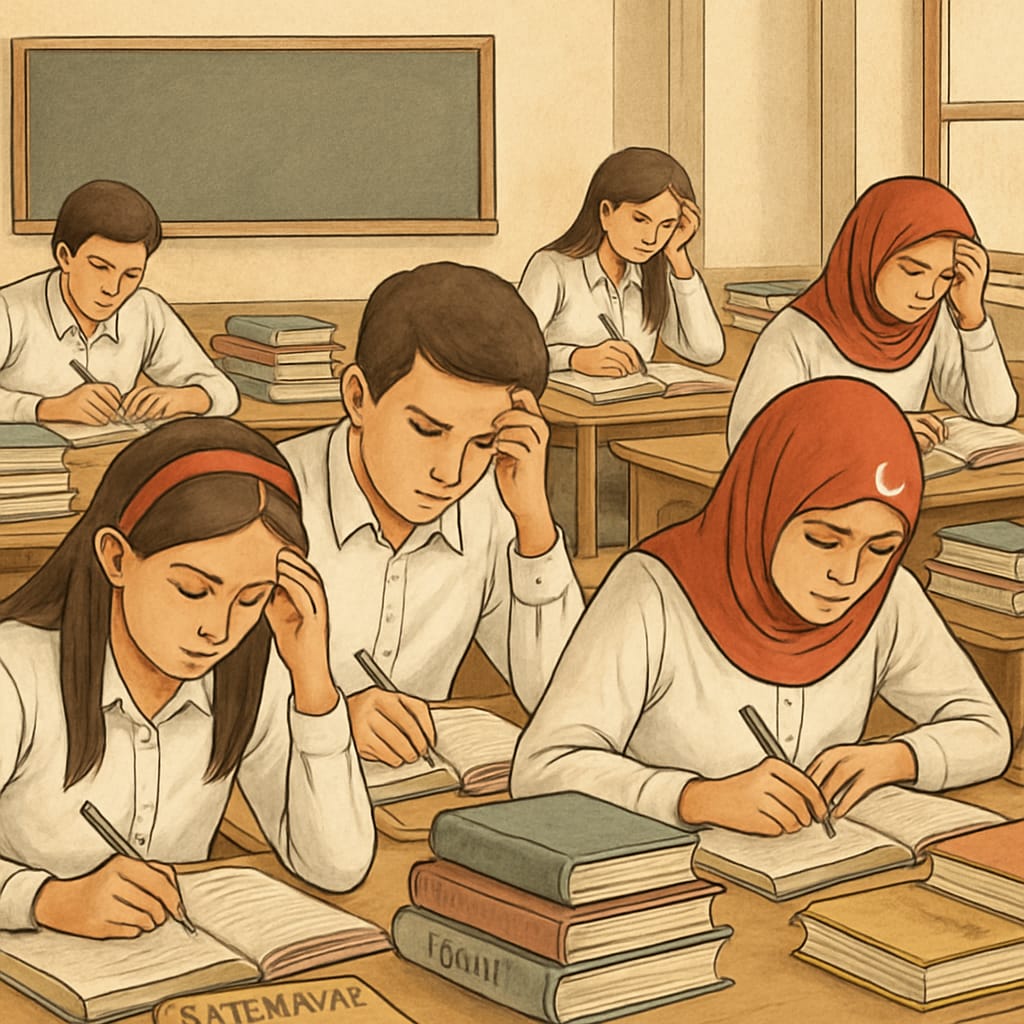Education systems play a crucial role in shaping the future of nations. However, the current exam-oriented education system in Turkey has raised concerns about its impact on student creativity, motivation, and overall development. In contrast, the UK’s A Levels curriculum offers a flexible and student-centered alternative. By comparing these two systems, we can better understand the need for education reform to unlock the true potential of students.
The Drawbacks of Turkey’s Exam-Driven Education System
Turkey’s education system is heavily centered around standardized exams, such as the LGS (High School Entrance Exam) and YKS (University Entrance Exam). These exams dominate the academic lives of students and are the primary measure of success. While this approach ensures uniformity in evaluation, it comes with significant drawbacks:
- High Stress Levels: Students face immense pressure to perform well, often prioritizing rote learning over understanding concepts.
- Limited Creativity: The focus on standardized testing stifles creativity, as students are rarely encouraged to think critically or explore their interests.
- Narrow Evaluation: Success is defined by exam scores, neglecting other important skills like communication, teamwork, and problem-solving.
As a result, many students graduate with a narrow skill set, unprepared for the diverse challenges of the 21st-century workplace.

The Student-Centered Approach of A Levels
In stark contrast, the UK’s A Levels system empowers students to tailor their education according to their strengths and aspirations. A Levels allow students to choose a small number of subjects to study in depth, fostering a more personalized and engaging learning experience. Key benefits of this system include:
- Flexibility: Students have the freedom to choose subjects that align with their career goals and interests.
- Critical Thinking: A Levels emphasize analytical skills, research, and independent learning, preparing students for higher education and beyond.
- Holistic Development: The system recognizes achievements beyond academics, such as extracurricular activities and personal projects.
By focusing on depth rather than breadth, A Levels encourage students to become lifelong learners and innovators, equipping them with the skills necessary to succeed in a rapidly changing world.

Why Turkey Needs an Education Reform
Turkey’s reliance on a one-size-fits-all education model is increasingly at odds with the demands of the modern world. To nurture creativity, adaptability, and innovation, the country should consider adopting elements of the A Levels system. Key areas for reform include:
- Reducing Exam Pressure: Shift the focus from high-stakes testing to continuous assessment and project-based learning.
- Introducing Subject Choice: Allow students to specialize in areas of interest, providing a more engaging and meaningful education experience.
- Fostering Critical Thinking: Incorporate activities that encourage analysis, debate, and problem-solving.
Such changes would not only benefit students but also contribute to a more innovative and dynamic workforce, driving economic and social progress.
For more information on the UK’s A Levels curriculum, visit A Levels on Wikipedia. To explore the challenges of Turkey’s education system, see Turkey’s Education System on Britannica.
Conclusion: A Call for Strategic Reform
While Turkey’s exam-driven education system has its merits, it is clear that a shift toward a more flexible and student-centered model is necessary. By learning from the success of the UK’s A Levels, Turkey can create an education system that not only evaluates academic performance but also nurtures creativity, motivation, and life skills. Education reform is not just an option—it is an imperative for a brighter and more innovative future.
In conclusion, the comparison between Turkey’s education system and the UK’s A Levels highlights the importance of adapting to the needs of modern learners. By embracing flexibility and personalization, Turkey can empower its students to thrive in a competitive global landscape.


